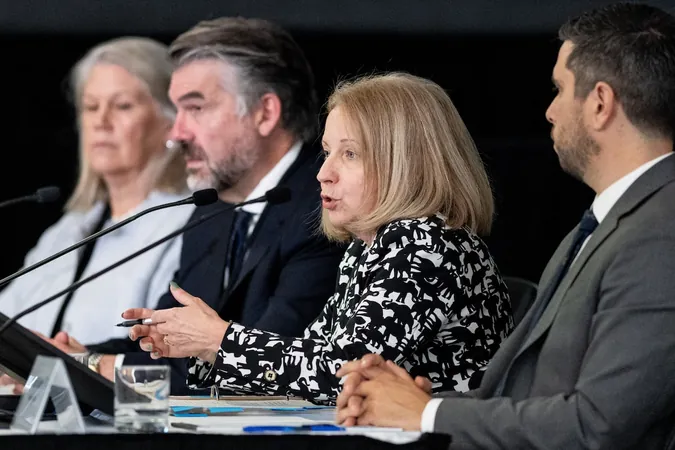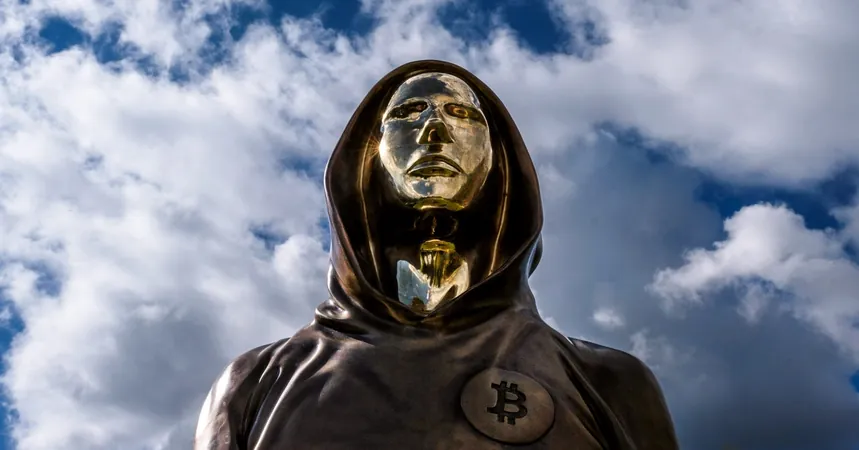
Shocking Revelations: Is Foreign Influence Eroding Canada’s Democracy? National Security Adviser Speaks Out!
2024-10-09
Author: Jacob
Background of the Inquiry
In an intense public inquiry on foreign interference, Prime Minister Justin Trudeau’s national-security and intelligence adviser, Nathalie Drouin, delivered her frank assessment, stating that while some Members of Parliament (MPs) have crossed ethical lines in their dealings with foreign powers, there is no evidence to suggest they have committed treason.
Nathalie Drouin's Statements
Drouin's statements came during an inquiry chaired by Marie-Josée Hogue, which was prompted by alarming findings from the National Security and Intelligence Committee of Parliamentarians (NSICOP). This committee, established by Trudeau, revealed earlier this year that certain federal politicians might have unwittingly or knowingly engaged in activities linked to foreign states.
Drouin stated, “It gives the impression that some MPs might have been aware and might have acted in a way that is close to treason, which makes me very uncomfortable because that is not what I see.” She elaborated that, although there were instances of questionable judgment and conduct among certain MPs, none were found to be engaged in acts of espionage, sabotage, or jeopardizing national security.
Concerns Over Public Trust
While acknowledging the pivotal work done by NSICOP, Drouin expressed concerns over the report's implications. “The impression left with this report might help foreign countries diminish public trust in our democratic system,” she cautioned. It’s worth noting that the members of NSICOP have refrained from discussing their findings further, citing the sensitive nature of national security.
No Evidence of Treason
Drouin, who also serves as the deputy clerk of the Privy Council, emphasized that her conclusions were based on the same intelligence gathered by NSICOP: “Now, the information that we have does not support the notion that there are traitors in Parliament.” However, she urged that inappropriate behavior must be acknowledged and rectified, stating, "It doesn’t mean that all individuals should have access to classified information."
Allegations of Misconduct
The NSICOP report suggested troubling behavior, indicating that certain politicians were accepting funds from foreign governments and maintaining frequent communications to rally support from community groups for foreign political agendas. Additionally, allegations surfaced that some MPs had leaked privileged information to foreign diplomats, potentially manipulating fellow legislators' positions on critical issues.
Proposed Measures
In light of these revelations, Drouin encouraged party leaders to be security-cleared to ensure they have access to classified intelligence. This proactive measure would allow them to protect sensitive information and identify MPs exhibiting questionable conduct. She clarified that those mentioned in the NSICOP report were not actively targeted by the Canadian Security Intelligence Service (CSIS) or Communications Security Establishment (CSE); instead, their activities were uncovered incidentally while monitoring broader foreign-interference operations.
Legal Constraints on Disclosing Names
As calls for the identification of implicated MPs loom large, Justice Hogue has asserted her inability to reveal names due to legal constraints. Nonetheless, her inquiry aims to tackle these allegations comprehensively in a classified section of her final report, which is expected to be delivered to the government by the end of December.
Conclusion and Future Implications
With these developments, Canada finds itself at a crucial crossroads. How will the government respond to safeguard its democratic integrity in the face of foreign influence? Will the public's trust in their leaders withstand the storm? Only time will tell as the inquiry unfolds. Stay tuned for updates on this escalating situation!









 Brasil (PT)
Brasil (PT)
 Canada (EN)
Canada (EN)
 Chile (ES)
Chile (ES)
 España (ES)
España (ES)
 France (FR)
France (FR)
 Hong Kong (EN)
Hong Kong (EN)
 Italia (IT)
Italia (IT)
 日本 (JA)
日本 (JA)
 Magyarország (HU)
Magyarország (HU)
 Norge (NO)
Norge (NO)
 Polska (PL)
Polska (PL)
 Schweiz (DE)
Schweiz (DE)
 Singapore (EN)
Singapore (EN)
 Sverige (SV)
Sverige (SV)
 Suomi (FI)
Suomi (FI)
 Türkiye (TR)
Türkiye (TR)